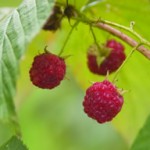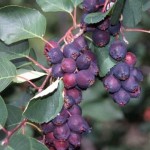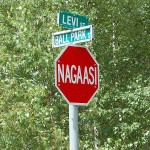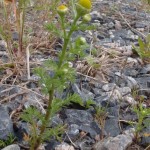Indian Summer of Language and Medicine

 Where I grew up, in another time and definitely another place, summer was a time to stock up on food for the winter to come. Working in the garden my mother planted that always seemed waaaay too big for a kid looking for some time off to have fun. Berry picking expeditions that would transform the cellar to a glow of purple saskatoons and crimson raspberries. There always seemed to be more hornets than berries. I don’t know why.
Where I grew up, in another time and definitely another place, summer was a time to stock up on food for the winter to come. Working in the garden my mother planted that always seemed waaaay too big for a kid looking for some time off to have fun. Berry picking expeditions that would transform the cellar to a glow of purple saskatoons and crimson raspberries. There always seemed to be more hornets than berries. I don’t know why.
Summer is typically seen as the lazy season by school kids. But for the quiet ones, the ones who don’t have the money to golf or hang out with their friends, and who live a contemporary life without gardens and berries, there are other things to do that fit the season. I stumbled across a couple of websites that make me wish I wasn’t in the working world so I could take advantage.
 The first, www.jilaptoq.ca, dips into the Mi’kmaq language. Its interactive dictionary is very useful for those trying to get their heads around how the language uses 16 letters of the English alphabet that don’t quite sound like they do in English.
The first, www.jilaptoq.ca, dips into the Mi’kmaq language. Its interactive dictionary is very useful for those trying to get their heads around how the language uses 16 letters of the English alphabet that don’t quite sound like they do in English.
The “jilapto” project means “leaving your mark.” Though it’s aimed at young people, nothing’s stopping any of us from giving it a whirl. You might come away from summer feeling just a little more worldly.
The other website I tapped into — www.gwichin.ca — is about traditional northern medicines.  It doesn’t have the same flexibility in many ways as the language site.
It doesn’t have the same flexibility in many ways as the language site.
That’s because while you can speak Mi’kmaq anywhere and it’s Mi’kmaq, Gwich’in plant names are unique to the Yukon-MacKenzie Valley-Alaska area. This means different names are used for identical plants outside the region, making it potentially tricky to relay their medicinal value due to uncertainty about whether you’re dealing with the same plant in your area.
But looking at the pictures helps. And, as with the language site, you feel just that much more tuned in to the world when you pick up a little of someone else’s local knowledge.
[ Images: discoverytrees catalogue; Verne Equinox of Elsipogtog First Nation; Ingrid Kirtsch, Gwich’in Ethnobotany ]


One thought on “Indian Summer of Language and Medicine”